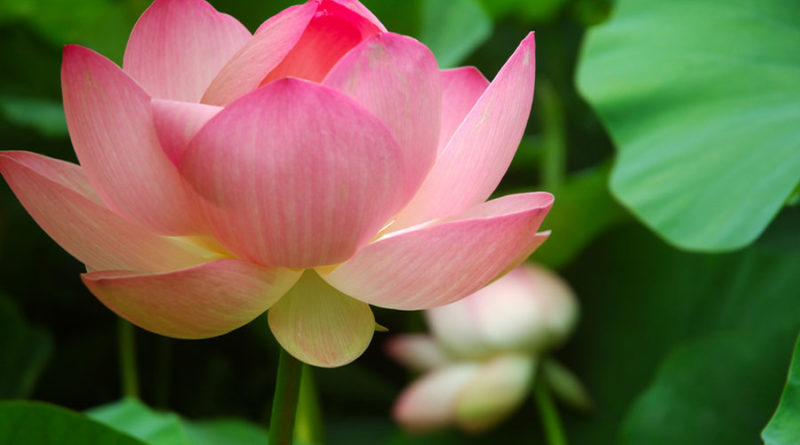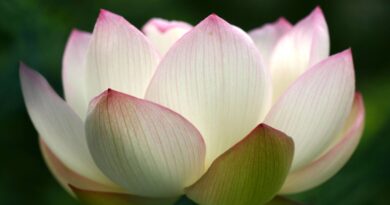1. Ekakanipāta Xv. Aṭṭhānapāli
Aṅguttara Nikāya
1. Ekakanipāta
XV. Aṭṭhānapāli
The Impossibilities
268. Bhikkhus, it is impossible that a person come to right view should think that any determinations are permanent. It is possible that an ordinary person should think that determinations are permanent.
269. Bhikkhus, it is impossible that a person come to right view should think that any determinations are pleasant. It is possible that an ordinary person should think that determinations are pleasant.
270. Bhikkhus, it is impossible that a person come to right view should think that any thoughts are his possession. It is possible that an ordinary person should think that thoughts are his possession.
271. Bhikkhus, it is impossible that a person come to right view should destroy the life of his mother. It is possible that an ordinary person should destroy the life of his mother.
272. Bhikkhus, it is impossible that a person come to right view should destroy the life of his father. It is possible that an ordinary person should destroy the life of his father.
273. Bhikkhus, it is impossible that a person come to right view should destroy the life of an arahant. It is possible that an ordinary person should destroy the life of an arahant.
274. Bhikkhus, it is impossible that a person come to right view should cause blood to ooze from some person’s body with a defiled mind. It is possible that an ordinary person should cause blood to ooze from some person’s body with a defiled mind.
275. Bhikkhus, it is impossible that a person come to right view should cause a schism in the Community. It is possible that an ordinary person should cause a schism in the Community.
276. Bhikkhus, it is impossible that a person come to right view should go to another teacher. It is possible that an ordinary person should go to another teacher.
277. Bhikkhus, it is impossible that two rightfully enlightened ones be born in the same world at one and the same time. It is possible that one rightfully enlightened one be born in the world at a certain time.
Dutiya vagga.
278. Bhikkhus, it is impossible that two universal monarchs be born in the world at one and the same time. It is possible that one universal monarch be born in the world at a certain time.
279. Bhikkhus, it is impossible that a woman could be the worthy, rightfully enlightened all knowing one. It is possible that a man could be the worthy, rightfully enlightened all knowing one.
280. Bhikkhus, it is impossible that a woman could be the universal monarch. It is possible that a man could be the universal monarch.
281. Bhikkhus, it is impossible that a woman could be the king of gods. It is possible that a man could be the king of gods.
282. Bhikkhus, it is impossible that a woman could be the king of Death (Māara). It is possible that a man could be the king of Death [Māra].
283. Bhikkhus, it is impossible that a woman could be the highest divine one. {Brahmā} It is possible that a man could be the highest divine one [Brahmā].
284. Bhikkhus, it is impossible that a person misconducting bodily should achieve pleasant agreeable results on account of it. It is possible that a person misconducting bodily should achieve unpleasant disagreeable results on account of it.
285. Bhikkhus, it is impossible that a person misconducting verbally should achieve pleasant agreeable results on account of it. It is possible that a person misconducting verbally should achieve unpleasant disagreeable results on account of it.
286. Bhikkhus, it is impossible that a person misconducting mentally should achieve pleasant agreeable results on account of it. It is possible that a person misconducting mentally should achieve unpleasant disagreeable results on account of it.
Tatiyavagga.
287. Bhikkhus, it is impossible that a person developing bodily good conduct should achieve unpleasant disagreeable results. It is possible that a person developing bodily good conduct should achieve pleasant agreeable results.
288. Bhikkhus, it is impossible that a person developing verbal good conduct should achieve unpleasant disagreeable results. It is possible that a person developing verbal good conduct should achieve pleasant agreeable results.
289. Bhikkhus, it is impossible that a person developing mental good conduct should achieve unpleasant disagreeable results. It is possible that a person developing mental good conduct should achieve pleasant agreeable results.
290. Bhikkhus, it is impossible that a person misconducting bodily, should on account of it, after death be born in increase, in a good state in heaven. It is possible that a person misconducting bodily, should on account of it, after death be born in decrease, in a bad state, in hell.
291. Bhikkhus, it is impossible that a person misconducting verbally, should on account of it, after death be born in increase, in a good state in heaven. It is possible that a person misconducting verbally, should on account of it, after death be born in decrease, in a bad state, in hell.
292. Bhikkhus, it is impossible that a person misconducting mentally, should on account of it, after death be born in increase, in a good state in heaven. It is possible that a person misconducting mentally, should on account of it be born in decrease, in a bad state, in hell.
293. Bhikkhus, it is impossible that a person developing bodily good conduct, should on account of it, after death be born in decrease, in a bad state in hell. It is possible that a person developing bodily good conduct, should on account of it, after death be born in increase, in a good state, in heaven.
294. Bhikkhus, it is impossible that a person developing verbal good conduct, should on account of it, after death be born in decrease, in a bad state in hell. It is possible that a person developing verbal good conduct, should on account of it, after death be born in increase, in a good state, in heaven.
295. Bhikkhus, it is impossible that a person developing mental good coonduct, should on account of it, after death be born in decrease, in a bad state in hell. It is possible that a person developing mental good conduct, should on account of it be born in increase, in a good state, in heaven.







